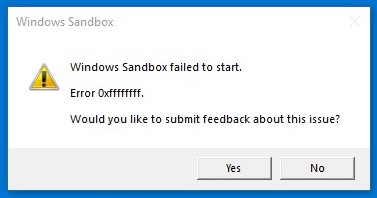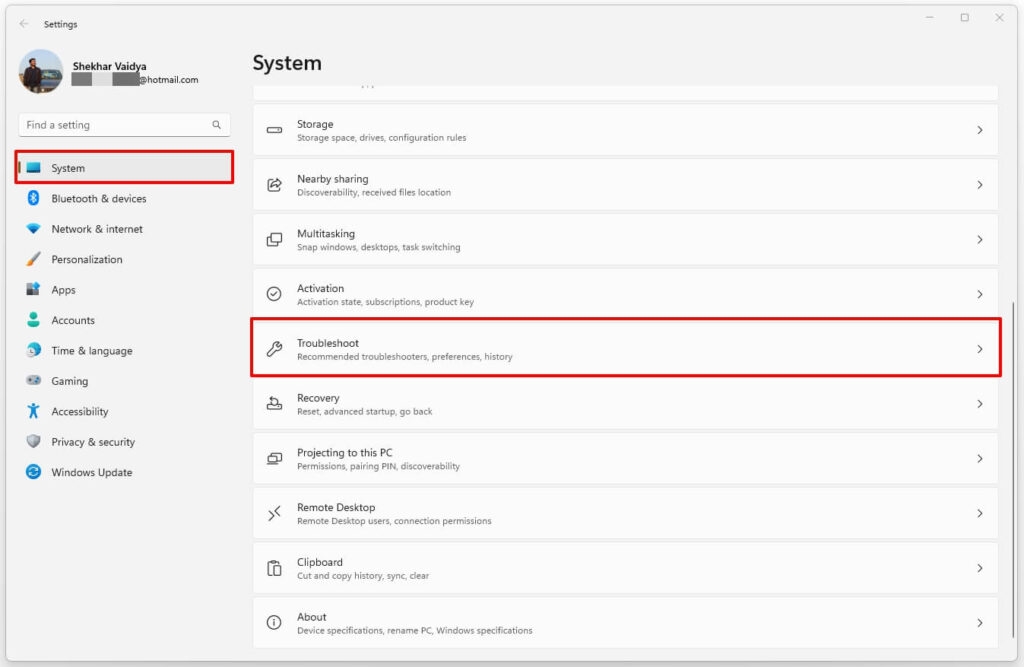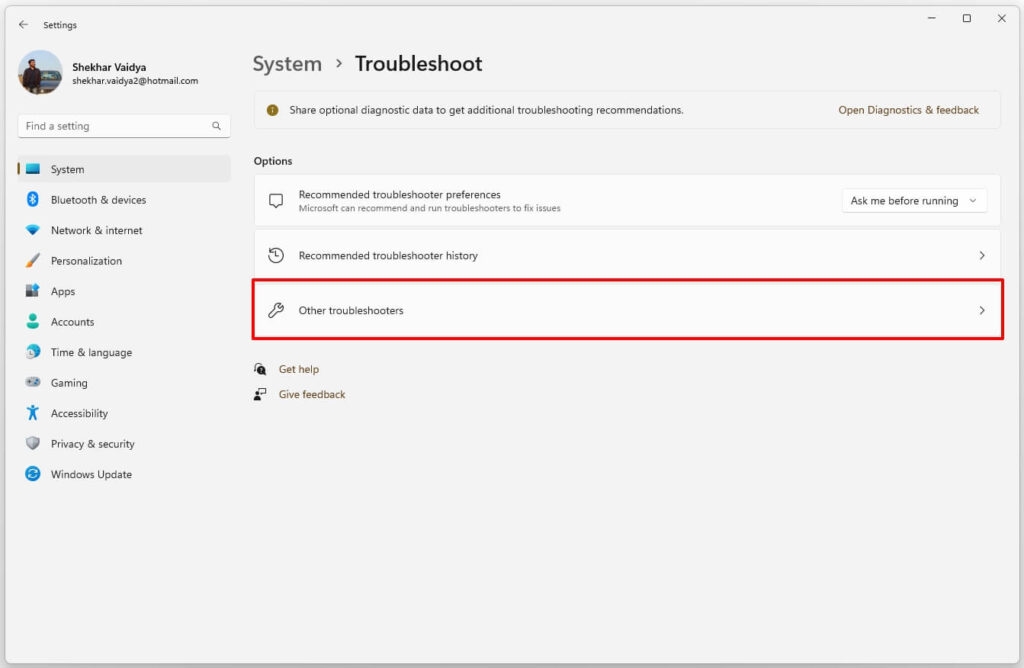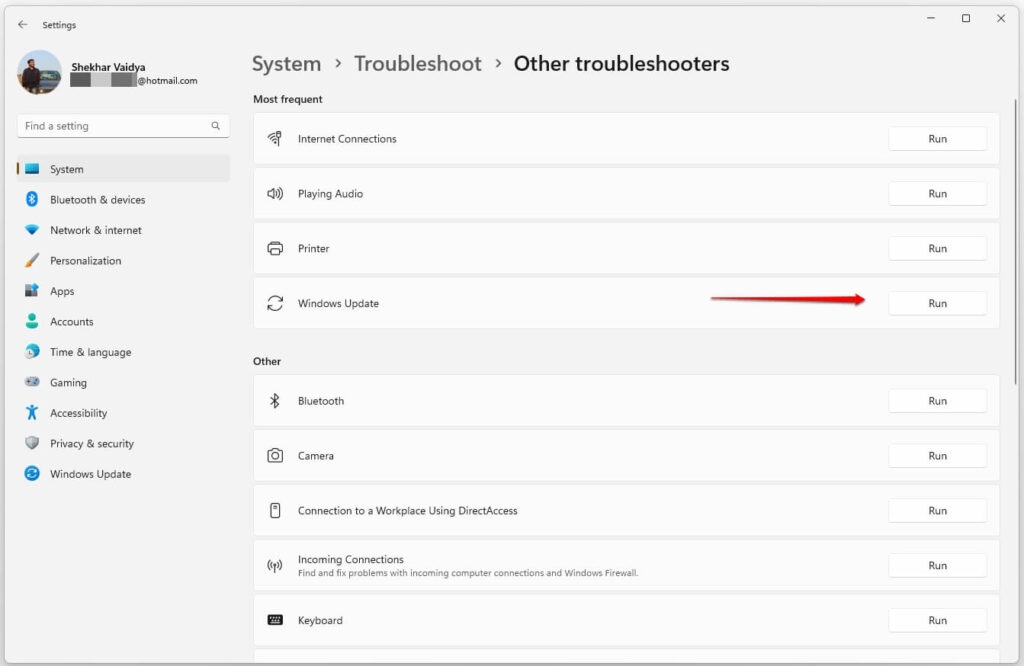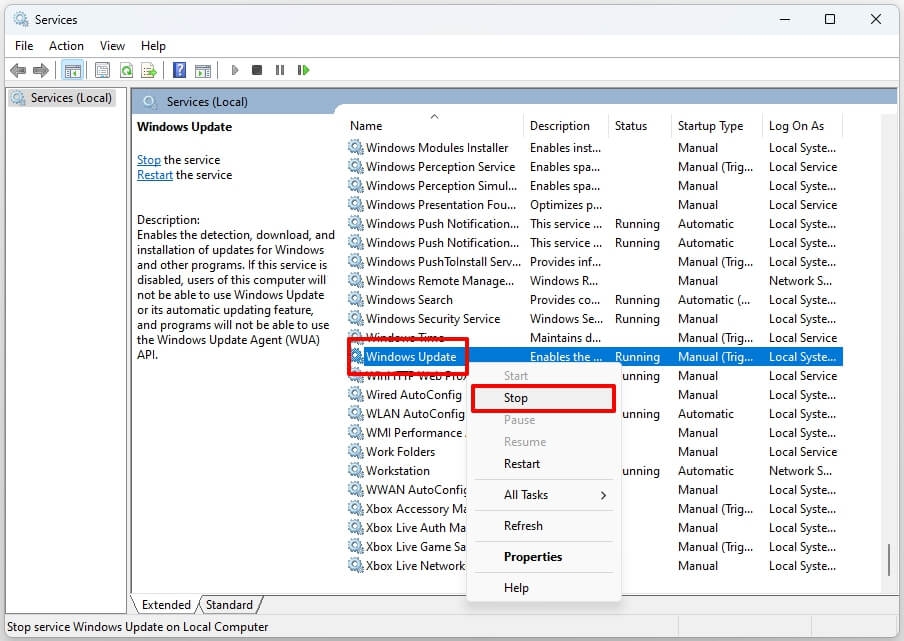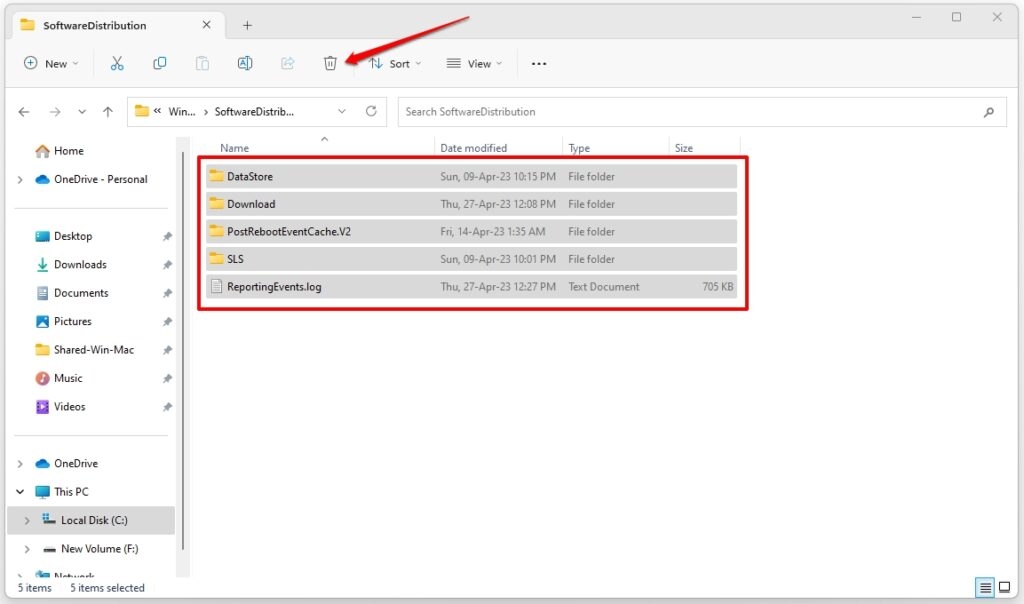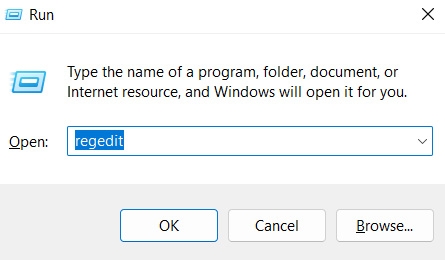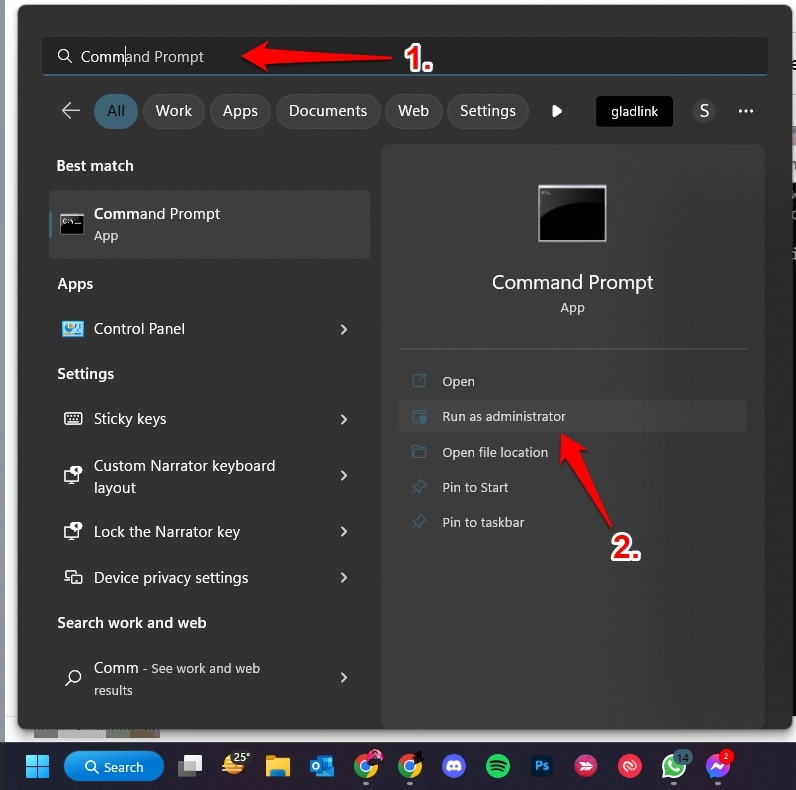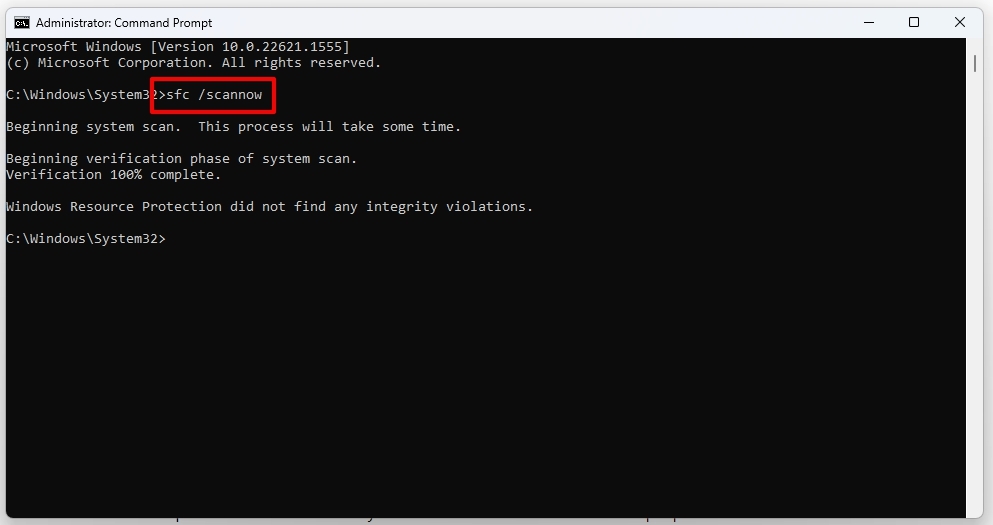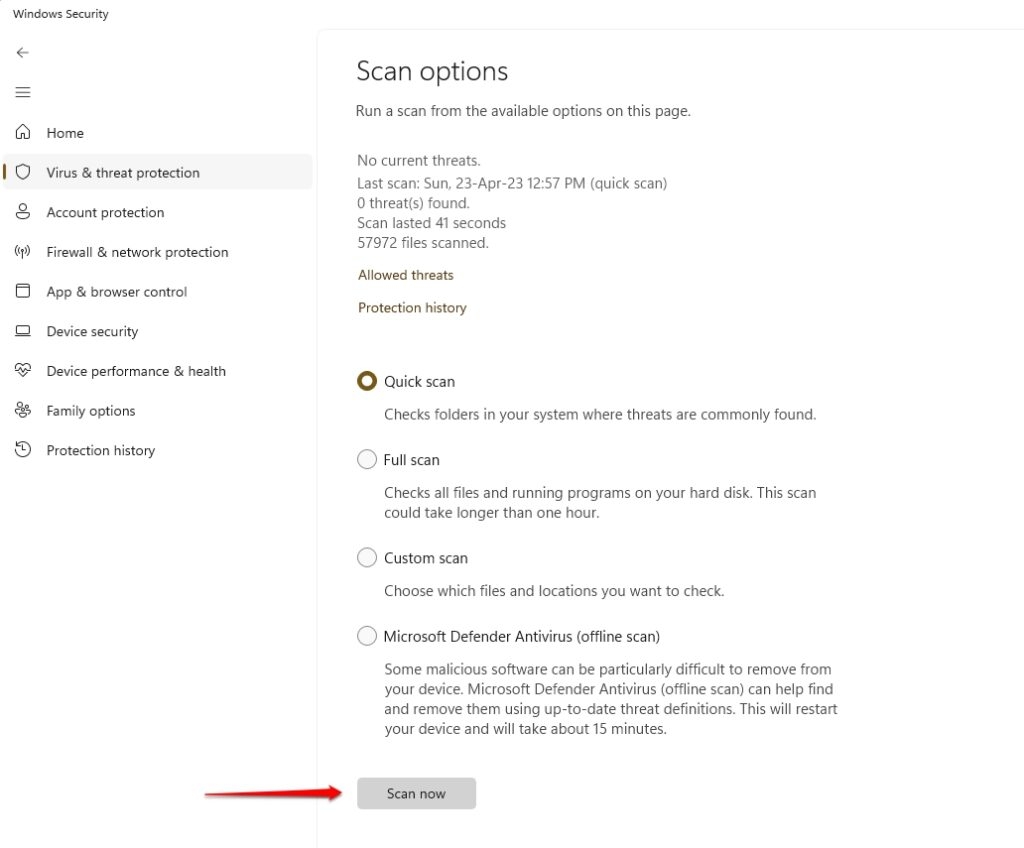However, your software update would stop generating the error code 0xFFFFFFFF on Windows. It impedes you from continuing update downloads or installation, and even a manual installation won’t help you often. In such a scenario, you would be looking for how to fix it, and we have covered you all!
How to Fix Error 0xFFFFFFFF in Windows?
There are several methods to troubleshoot the error code 0xFFFFFFFF on your Windows. Their effectiveness depends upon the causes. Hence, follow each solution for their reasons and check which one works for you.
Method 1: Restart your PC
Your WindowsOS update would stop all of a sudden, generating an error code 0xFFFFFFFF. One of the most common causes of it includes too much cache memory, an unstable internet connection, and even temporary glitches. So, to resolve it, you should restart your computer, and your problem will be solved easily. Most users reported it worked for them as it was merely a technical glitch.
Method 2: Run Windows Update Troubleshooter
When the above methods didn’t help you, there’s no temporary glitch but another reason. A simple way to check this is using the Windows Update Troubleshooter. Your PC has a range of various troubleshooters which help you detect problems and, accordingly, fix them. So when the error 0xFFFFFFFF pops up, there are issues with the update-related features, and hence you should proceed accordingly. Follow the steps given below to run Windows Update Troubleshooter: (Alternative: Press the Win+I keys to open Settings) The tool will begin scanning your PC, and you must wait until the process completes. Afterward, it will show you the issues and fix them. It might also prompt you to follow some steps to troubleshoot it.
Method 3: Delete the Components of the Software Distribution Folder
Similar to having too much cache on your device, there’s a folder on your system that stores the cache memory related to update services. The Software Distribution folder stores it, but often its files get corrupted or are missing, which interferes with Windows updates. In such a situation, you can delete the folder’s components to fix it. Though the files will delete, Windows will again career it and hence effectively resolve the issue. Follow the steps given below to do so: It’s noteworthy that if you have installed Windows or any other drive, replace the letter C with the letter of that drive. Further, starting Windows Update in this method will recreate its components.
Method 4: Delete Folders of Windows Update Download Path
Windows stores its previous update versions and related processes at a specific path. You can restore your system to an earlier version later on. However, often a congested update download path leads to the error code 0xFFFFFFFF on Windows. Hence, you have to delete all its folders to fix the issue. Follow the steps given below to do so: Now, restart your PC for the changes to reflect and try again.
Method 5: Restart Windows Update Services
Windows uses Update Services to execute an update smoothly. However, if any of these services aren’t working optimally, then you would find it problematic to update your system with an error generation of 0xFFFFFFFF. Therefore, you have to restart Windows Update services. Here’s how you can do so: After restarting, again begin the downloading process, and the error will be resolved if there is a glitch with the update services.
Method 6: Run SFC Scan
The methods mentioned above would have helped you fix the issue, but in rare cases, they did not. In such a scenario, there would be corrupt or missing files on your Windows leading to the problem. Hence, to overcome the situation, you should run an SFC scan. The system file checker will check for issues and try to fix them, if any. Follow the steps given below to run SFC scan on Windows: After doing so, the System File checker will begin its scan. Wait for the process to complete, and it will display the status. If there were any system files issue, then the tool would probably have troubleshot it.
Method 7: Scan your PC for Malware
If SFC weren’t able to resolve the issue or didn’t diagnose any yet, you are facing the error 0xFFFFFFFF, then your PC would have malicious files or programs. You can use third-party tools to check for them. Besides, Windows too has an inbuilt tool that scans malware. Here’s how you can use it: Windows will complete the scan and display the malware detected. You have to delete it accordingly. Thus, you would resolve the error code 0xFFFFFFFF.
The Final Word – Error 0xFFFFFFFF on Windows
Updating your Windows OS from time to time is essential so that it functions well. Be its system files, programs, or drivers, they all become outdated and wear and tear with time. Hence an update is essential. Besides, even to accommodate the latest software also, upgradation helps. Considering its significance, you would download and install the latest version, but the error code 0xFFFFFFFF would interfere with the process. Besides, your PC might sometimes fail to search for networks. Retrying it multiple times won’t help until you fix the root cause. Hence, restart your PC and run Windows Update Troubleshooter to resolve it. If that doesn’t help, then clear the components of the Software Distribution Folder and the path of Windows Update Download. Later on, restart the Windows Update services. These solutions will work for you depending on the root cause; else, refer to our complete guide for help. Further Reading:
[Solved] DNS Probe Finished No Internet Error Best Steam Wallpaper Engine Alternative for PC How to Fix if Windows Explorer Keeps Crashing?
